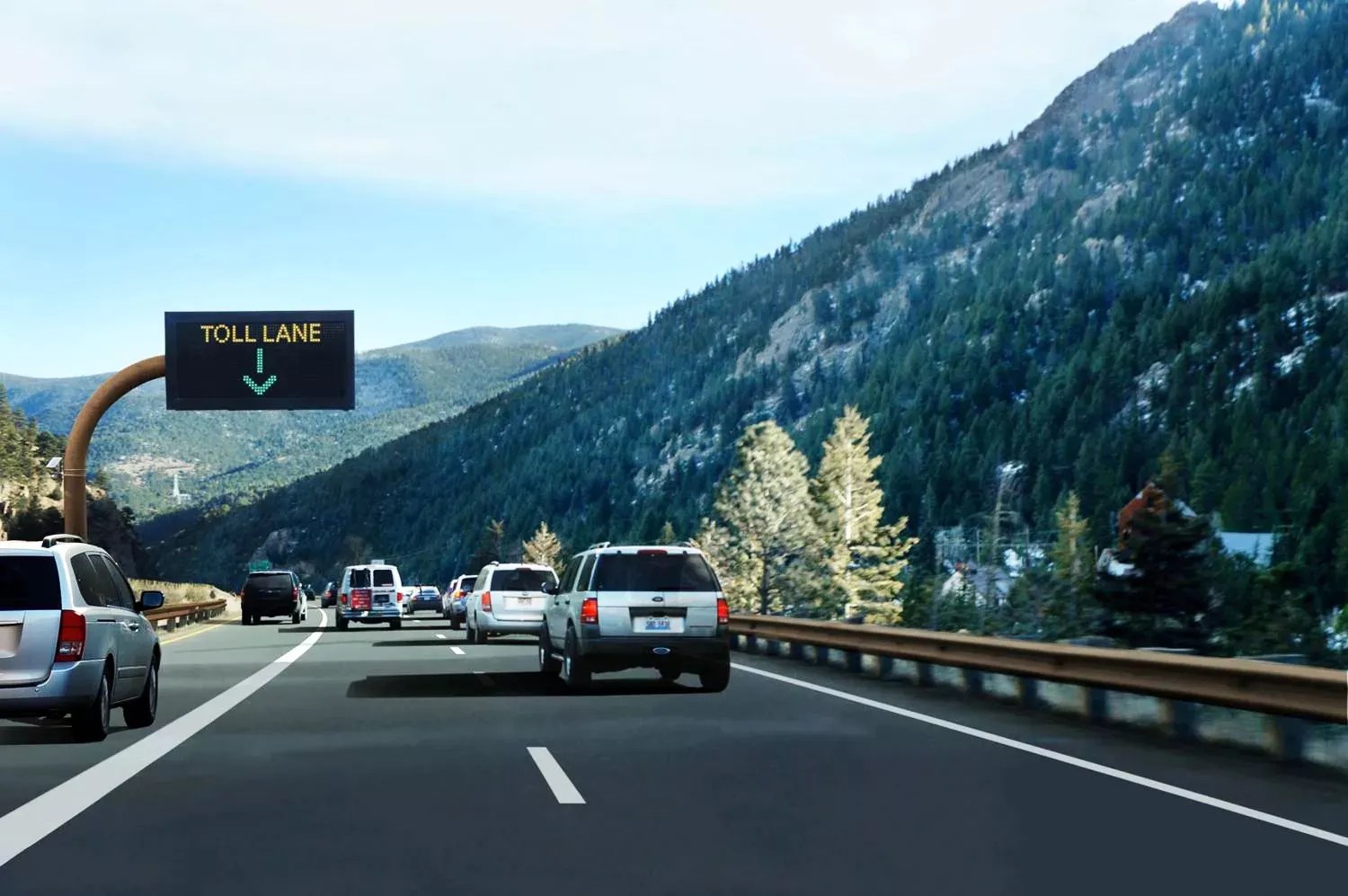
Colorado Department of Transportation

Audio By Carbonatix
Colorado began issuing new traffic fines on two highways in October – but it seems that not everyone got the memo.
The first-of-its-kind enforcement program uses sensors and cameras to catch drivers who cross the solid white lines of express lanes, whether they’re swerving in and out to avoid paying the toll or using the lane to pass another vehicle. Crossing the line on Interstate 25 north of Denver or C-470 in the south metro area now results in a $75 fine (or $150 if it’s not paid within twenty days), with a notice mailed to the vehicle’s registered address.
In the less than three months since the fines started rolling out, one unnamed Colorado driver has collected 53 violations on C-470 alone, according to the Colorado Department of Transportation. That’s between $3,975 and $7,950 in fines. The other top offenders are two I-25 drivers with 45 and 44 violations each.
“Sounds like a real contest, so, hard to say who’ll win that one,” says Tim Hoover, CDOT spokesperson. “Getting a fine once is enough for most folks.”
Nearly 106,000 fines were issued on the two highways from October 1 to December 18, and another 74,500 drivers received warnings the month before, according to CDOT. The total number of fined violations rises to around 122,400 when including the I-70 mountain express lanes, where violations have been enforced since the summer.
High-end cars disproportionately violate the express lane rules. Despite accounting for a very small portion of cars on Colorado roads, more than one-third of the thirty top offending vehicles are luxury brands. Audi, Cadillac and Porsche all landed between the 12th and 27th top spots. Predictably, the top three violators were some of the most common vehicles driven in Colorado: Ford, Toyota and Chevrolet.
The penalties for these violations are civil, so they don’t come with any criminal charges or take points off a driver’s license. But if the fines go unpaid for long enough, drivers can get a hold placed on their vehicle registration, making them unable to renew. That hasn’t happened yet, Hoover says, but it’s “surely just a matter of time.”
So far, enforcement has delivered promising results, Hoover says. Since the fines started, violations have gone down by roughly 60 percent on I-25 and C-470, according to CDOT.
“We think this program is almost certainly life-saving, because sharply curbing dangerous driving will ultimately bear that fruit,” Hoover says. “It’s reasonable to infer that if violations have dropped so dramatically – again, by about 60 percent – there will naturally also be a reduction in injury and fatality accidents.”
After the expenses of running the program, CDOT has raked in about $1.1 million through the fines.
The department hasn’t made any commitments for how it will spend that money, Hooever says, since the amount is likely to fluctuate significantly in the coming years. The department currently plans to use it for construction debt, operations and maintenance, safety improvements and public outreach about the program.
Eventually, the program will be expanded to all Colorado express lanes, according to CDOT. So you might want to think twice about crossing the line.